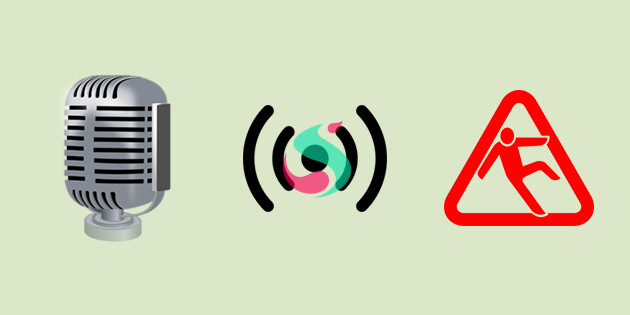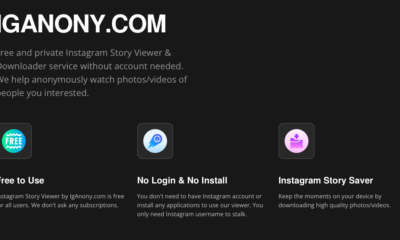News
Why Some People Think David Cage’s Games Aren’t Great
Published
6 months agoon
By
Anderson
David Cage, the French video game designer and director, is best known for his narrative-driven games like Heavy Rain, Beyond: Two Souls, and Detroit: Become Human. While these games have garnered attention for their ambitious storytelling, they have also faced considerable criticism. Some players and critics argue that his games miss the mark in terms of gameplay and narrative. In this article, we’ll explore why some people believe David Cage’s games aren’t as great as they’re made out to be.
What Are David Cage’s Most Famous Games?
David Cage’s games are usually noted for their strong emphasis on storytelling and their cinematic presentation. Some of his most famous titles include:
- Heavy Rain (2010)
- Beyond: Two Souls (2013)
- Detroit: Become Human (2018)
Each of these games centers around a narrative-driven experience where players make decisions that affect the outcome of the story. While they have been praised for their stunning visuals and innovative use of motion capture technology, they’ve also faced significant criticisms, particularly concerning the gameplay and character development.
Why Do Some Players Not Like His Games?
While David Cage’s games boast cutting-edge visuals and intriguing plots, they often don’t live up to the expectations set by other titles in the gaming industry. Many players argue that his games focus too much on narrative and forget the importance of interactive gameplay. A primary criticism is that his games often lack the depth and complexity seen in traditional video games. Instead of offering engaging mechanics, the player is often left with quick-time events and linear choices that don’t feel meaningful.
Additionally, some players claim that the characters in Cage’s games can be unrelatable or poorly developed, making it difficult for players to truly invest in the story. This lack of emotional connection might turn some players away from the experience.
What Do Critics Say About David Cage’s Games?
David Cage’s games are often met with mixed reviews from critics. On one hand, the narrative and visual aspects of his titles are usually praised. However, on the other hand, the gameplay, character development, and lack of meaningful player choice are common points of contention. Critics argue that while the stories Cage crafts are ambitious, they often fall short of achieving the depth and complexity needed to truly captivate audiences.

Do His Games Have Big Plot Problems?
One of the most frequent critiques of Cage’s games is the storylines. While they aim to deliver complex narratives, some feel the plots often veer into melodrama or present unrealistic situations. In Heavy Rain, for instance, the emotional weight of the plot can sometimes feel forced, with twists that seem designed for shock value rather than genuine storytelling.
Are the Characters in His Games Well-Developed?
Character development is another area where Cage’s games often fall short. Many of the characters are written in a way that feels stereotypical or superficial. In Beyond: Two Souls, the protagonist, Jodie Holmes, feels like a collection of random traits, making it difficult for players to emotionally connect with her. Similarly, the characters in Detroit: Become Human are often seen as exaggerated archetypes, rather than fully realized individuals.
Is the Gameplay in His Games Fun?
When it comes to gameplay, David Cage’s titles are often criticized for their lack of interactivity. Many of his games rely heavily on quick-time events (QTEs) that can be frustrating for players looking for deeper, more engaging mechanics. While these QTEs are designed to create a cinematic feel, they often detract from the player’s sense of agency, making the experience feel more like watching a movie than playing a game.
How Do David Cage’s Games Compare to Other Games?
When compared to other games in the same genre, David Cage’s titles often seem limited. While Detroit: Become Human presents an ambitious, branching narrative, the choices players make frequently feel inconsequential. In contrast, games like The Witcher 3 and Red Dead Redemption 2 provide immersive worlds with deeper mechanics, where player decisions feel more impactful. These games are better at integrating story and gameplay, something that Cage’s titles often struggle with.
What Do Fans Think About His Games?
David Cage has a dedicated fanbase who admire his commitment to delivering complex, story-driven games. For these fans, the lack of traditional gameplay elements is a non-issue, as they are more invested in the stories he tells and the emotional journeys he creates. Fans of Detroit: Become Human, for instance, enjoy the game’s exploration of artificial intelligence and moral dilemmas, even if the gameplay itself isn’t revolutionary.
However, not all fans are equally enthusiastic. Some feel that the game’s narrative isn’t as deep as it could be, and that the gameplay mechanics don’t match the ambition of the story. For these players, the experience feels more like a movie with occasional interactive elements, rather than a true video game.
What Are Some Examples of Criticisms?
David Cage’s games have received their fair share of criticisms, which often focus on the same issues: the focus on narrative over gameplay, the weak character development, and the overall lack of meaningful player choice.

Do His Games Have Unbelievable Stories?
The plots of Cage’s games are often labeled as unrealistic, with some players feeling that the twists and turns are overly dramatic and unbelievable. In Heavy Rain, for example, the motivation behind the killer’s actions seems contrived, and some of the story developments are hard to accept as anything other than plot devices.
Are the Characters in His Games Stereotypical?
Many critics argue that Cage’s characters lack depth and come off as stereotypical. In Beyond: Two Souls, for example, Jodie Holmes is portrayed as the “tragic heroine,” a character who never truly breaks free of the mold. Similarly, the androids in Detroit: Become Human are designed to be morally ambiguous, but they often end up feeling like simple representations of larger social issues.
Do His Games Feel Like Movies Instead of Games?
This is one of the most frequent criticisms of David Cage’s work. His games often feel more like interactive films rather than traditional video games. While this cinematic approach has its appeal, it also leaves a lot to be desired for players who want more than just a story with some interactive moments. The heavy reliance on quick-time events and cinematic sequences can detract from the immersive, hands-on experience that many gamers enjoy.
What Are Some Positive Things About His Games?
Despite all the criticisms, it’s important to note that David Cage’s games are not without merit. The quality of the storytelling, motion capture, and visual presentation are all standout features. Games like Detroit: Become Human tackle difficult subjects such as human rights, artificial intelligence, and social justice, making them thought-provoking experiences for players who appreciate narrative-driven gameplay.
The Bottom Line
David Cage is a polarizing figure in the world of video game development. While some players and critics argue that his games are more movie-like than interactive experiences, others appreciate the depth and emotional resonance of the stories he tells. Ultimately, whether you enjoy his games or not depends on your preference for gameplay versus narrative. If you value traditional gaming mechanics and complex character development, you may find his work lacking. However, if you appreciate narrative-driven games with a cinematic feel, his titles could be exactly what you’re looking for.
You may like
News
Looking for a Kia in Riverdale, NJ? Here’s What You Should Know!
Published
19 minutes agoon
July 29, 2025By
Anderson
If you’re in Riverdale, NJ, and considering buying a Kia, you’re already on the right track. Kias are known for their reliability, style, and affordability, making them a smart choice for families, students, and commuters alike. This complete guide will walk you through everything you need to know about buying, financing, and maintaining a Kia in Riverdale, NJ. Whether you’re new to car shopping or just looking for the best local deals, we’ve got you covered.
Why Do People Love Kia Cars in Riverdale, NJ?
Kia has become a go-to brand for many Riverdale residents, and it’s easy to see why. For years, Kia was considered a budget-friendly option with few standout features, but in recent years, that image has completely changed. Today’s Kias are packed with advanced technology, safety features, modern designs, and fuel efficiency that rivals some of the biggest car brands in the world.
One reason people in Riverdale love Kia is the brand’s wide range of models that meet different needs. From compact sedans perfect for urban commutes to spacious SUVs built for family adventures, Kia offers something for everyone. Plus, with rising fuel costs, many buyers appreciate Kia’s hybrid and electric options, which help save money in the long run.
Another reason Kia stands out is the generous warranty. Kia offers a 10-year/100,000-mile powertrain warranty, which gives Riverdale drivers peace of mind. Combine that with excellent safety ratings and affordability, and you have a winning combination that keeps Kia owners loyal year after year.
Best Kia Models You Can Find in Riverdale, NJ
Kia has released a lineup that fits every lifestyle and budget. If you’re looking to explore the streets of Riverdale or go on road trips through New Jersey, there’s a model for you.
- Kia Forte – This compact car is perfect for students or daily commuters. It has great gas mileage, stylish looks, and advanced safety tech at a reasonable price.
- Kia Sportage – A compact SUV with plenty of room for passengers and cargo. It’s great for families or people who love outdoor adventures.
- Kia Sorento – This mid-size SUV comes with three rows of seating, making it ideal for larger families. The Sorento is also available in hybrid versions.
- Kia Telluride – A full-size SUV that has been winning awards year after year. It’s luxurious without the luxury price tag and is one of the most loved family SUVs in Riverdale.
- Kia Niro – A hybrid crossover that’s perfect for eco-conscious drivers. It offers excellent fuel economy without compromising on space or features.
Each of these models is built with comfort, technology, and performance in mind—making Kia one of the top choices for car shoppers in Riverdale.
Where to Buy a Kia in Riverdale, NJ
If you’re wondering where to find a Kia near you, there are several convenient options for purchasing a Kia in Riverdale.
Visit Local Kia Dealerships
There are reputable Kia dealerships located near Riverdale that offer new and certified pre-owned models. These dealerships typically have a wide range of inventory and trained professionals who can help you find the best vehicle based on your needs and budget. Some of the best nearby dealers also offer trade-in programs and seasonal promotions.
Online Kia Listings Near Riverdale
For people who prefer shopping from home, many dealers list their inventory online. Websites like AutoTrader, CarGurus, and the official Kia website allow you to filter by make, model, year, price, and distance from Riverdale. Online platforms often feature price comparisons, so you know you’re getting a fair deal.
Ask About Kia Certified Pre-Owned Cars
Kia’s Certified Pre-Owned (CPO) program is perfect if you’re looking for a high-quality used vehicle with a warranty. These cars go through a strict inspection process and come with added benefits like extended warranties and roadside assistance. Buying CPO is a smart way to get a newer model at a lower price with added peace of mind.
How to Get the Best Kia Deal in Riverdale
Scoring a great deal on a Kia in Riverdale isn’t just about finding a low sticker price—it’s about the total value you receive. Timing your purchase around major sales events like Presidents’ Day, Memorial Day, or year-end clearance events can save you thousands. Many dealerships also offer promotional financing or cash-back offers.
Trade-in value can also play a major role in your deal. Before visiting a dealership, research the value of your current car using tools like Kelley Blue Book. It’s a good idea to get multiple quotes if you’re selling or trading in your car.
You should also check for manufacturer rebates or discounts for recent college graduates, military personnel, or loyalty incentives. These offers can significantly reduce your overall cost.
Kia Service Centers in Riverdale, NJ
Kia owners in Riverdale benefit from a solid network of service centers that specialize in Kia vehicles. Whether it’s a regular oil change, tire rotation, or a complex repair, these certified service centers are staffed with trained technicians who use genuine Kia parts.
Maintaining your Kia with regular service is crucial to preserving its performance and extending its life. Many local dealers even offer service packages or prepaid maintenance plans that save you money in the long run.
Most service centers also offer online booking, so you can schedule your maintenance around your busy schedule. Some centers provide loaner cars or shuttle services to make things easier for customers.
Used Kia Cars in Riverdale – Are They Worth It?
Used Kias are a smart buy, especially in a market like Riverdale where demand for affordable and reliable cars is high. A well-maintained used Kia can serve you for many years while costing far less than a new car. Many used Kias also come with the remainder of the original warranty, which adds extra value.
When buying used, it’s essential to check the vehicle history report. Tools like Carfax or AutoCheck can show you if the car has been in any accidents or had major repairs. A Certified Pre-Owned Kia is an even better choice, as it has been inspected and approved by the manufacturer.
Compare Kia With Other Brands
Before making your final decision, it’s helpful to see how Kia compares with other popular brands. Here’s how it stacks up.
Kia vs Toyota – Which One Is Better for You?
Both Kia and Toyota are known for reliability and resale value. However, Kia has stepped up its game in recent years with more stylish interiors and tech features. While Toyota might still have a slight edge in long-term reliability, Kia often wins in price, warranty, and value for money. If you’re on a tight budget but want the best features, Kia is likely the better deal.
Kia vs Honda – Which Lasts Longer?
Honda has a strong reputation for durability, but Kia’s improved build quality in recent years has narrowed the gap. Kia’s 10-year powertrain warranty gives it a big advantage over Honda’s shorter coverage. If properly maintained, modern Kia vehicles can easily last 150,000 to 200,000 miles, which is on par with Honda.
How to Finance Your Kia in Riverdale, NJ
Financing your Kia in Riverdale is easier than ever. Most local dealers work with multiple banks and credit unions to help buyers get approved, even with low or no credit. Before heading to a dealership, it’s a smart move to get pre-approved for a loan. This way, you’ll know your budget and can avoid higher-than-needed interest rates.
Financing terms typically range from 36 to 72 months. If you can afford a larger down payment, you’ll end up with lower monthly payments and less interest paid over the life of the loan. Don’t forget to ask about special financing offers, especially if you qualify for promotions based on your job, military service, or student status.
Leasing is also a great option if you prefer lower monthly payments and plan to drive a newer car every few years. Most Kia leases include options for upgrades, end-of-term buyouts, and maintenance bundles.
The Bottom Line
If you’re searching for a reliable, affordable, and stylish car in Riverdale, NJ, then Kia should definitely be on your radar. With a wide range of models to choose from, attractive financing offers, and some of the best warranties in the industry, Kia delivers excellent value for drivers of all types.
Whether you choose a brand-new Telluride, a Certified Pre-Owned Forte, or a budget-friendly used Soul, you’re getting a vehicle built to last. Combine that with top-tier local dealerships and service centers in Riverdale, and it’s clear why so many people are turning to Kia.
From shopping and financing to servicing and comparing with other brands, this guide gives you everything you need to make an informed, confident decision. So the next time you see a Kia cruising through Riverdale, you’ll know exactly why it’s such a popular choice—and maybe you’ll be behind the wheel of one soon too.
News
Why Everyone Loves the Bronco with Removable Top
Published
29 minutes agoon
July 29, 2025By
Anderson
The Ford Bronco with a removable top has become a top choice among adventure lovers, road trippers, and even everyday drivers in the United States. This one-of-a-kind SUV offers the perfect balance of freedom, rugged capability, and unique style. Whether you’re heading to the beach, driving through the mountains, or just enjoying the wind in your hair around town, the Bronco with removable top brings unmatched excitement to every journey. But what exactly makes this feature so popular? Let’s dive deep into everything you need to know about it.
What Is a Bronco with a Removable Top?
The Ford Bronco with a removable top is part of the modern redesign of the classic Bronco SUV. Unlike traditional vehicles, the Bronco gives drivers the option to take off the roof, turning their ride into a convertible SUV. This isn’t just a small sunroof — it’s a full roof system that can be removed to create an open-air experience.
Bronco models come with either a soft top or a hard top, both designed to be removed without needing special tools. You can take off just one panel or the entire roof, depending on the weather or your mood. This flexibility is what makes the Bronco such a standout in the SUV world. It feels like a Jeep, drives like a truck, and looks like a classic, but it’s built with modern tech, safety, and comfort in mind.
Why Do People Love the Removable Roof?
One of the biggest reasons people love the Bronco with removable roof is the sense of freedom it offers. Imagine cruising down the highway with the wind blowing through your hair and the sun shining overhead. It’s not just about the ride — it’s about the experience. This feeling of openness brings a new level of fun and adventure to everyday driving.
Another reason is versatility. The roof can be taken off in sections, so you don’t have to go fully topless if you don’t want to. You can remove just the front panels for a targa-style drive, or the whole roof for a convertible SUV experience. Whether you’re heading out for a weekend camping trip or just driving to work, you can choose how you want your ride to feel.
Lastly, it’s about style and personality. The Bronco has a bold look, and taking the top off adds to its rugged charm. It’s an attention-grabber on the road and turns heads wherever it goes. Owning a Bronco with removable top says you’re ready for adventure — any time, any place.
Best Times to Take the Top Off
Taking the top off your Bronco isn’t just about fun — timing matters too. Depending on where you live and what kind of trip you’re planning, the perfect moment can make all the difference.
Summer Drives to the Beach
One of the best times to remove the roof is during summer. Imagine pulling up to the beach in your open-top Bronco, surfboard in the back, and cool breeze all around you. The sun, sand, and sea feel even better when there’s nothing between you and the sky. Just make sure to wear sunscreen and bring a hat — it gets sunny up there!
Mountain Trips and Camping
Mountain drives and forest trails are another perfect reason to go roofless. Whether you’re camping in the Rockies or exploring remote trails, the Bronco with the top off gives you a real connection to nature. Listen to the birds, smell the pine trees, and feel the cool mountain air. You don’t get that in a regular SUV.
Just for Fun Around Town
Sometimes, you don’t need a big reason to go topless. Maybe it’s a sunny Saturday and you’re grabbing coffee or heading to the farmer’s market. Removing the top makes even simple errands feel like a mini vacation. Plus, it’s a great way to show off your unique ride.
Is It Hard to Remove the Top?
Many people wonder if taking off the top is difficult. Luckily, Ford designed the Bronco to make roof removal simple and fast. The roof panels are built for easy handling, even by one person in most cases.
The hard top has modular panels that can be removed one section at a time. The front panels are light enough for most adults to lift off without help. The rear panels might need a second person, but no special tools are needed — just some latches and a bit of patience.
The soft top, on the other hand, is even easier. It folds back like a giant sunroof and can be fully taken off or rolled back halfway depending on how much open air you want. This means even quick, last-minute decisions to go topless are possible.
What’s the Difference Between Soft Top and Hard Top?
Choosing between the soft top and hard top is one of the most important decisions Bronco buyers face. Each has its pros and cons depending on how you plan to use your Bronco.
- Soft Top: Made of strong, weather-resistant fabric. It’s lighter and easier to remove or fold back. Perfect for casual users who want the flexibility of taking the roof down quickly. However, it may be a little noisier on the highway and less secure if you park in busy areas.
- Hard Top: Made of durable composite material. It’s quieter, better insulated, and more secure. It looks sleek and feels solid. But it’s heavier and takes a little more effort to remove. Some people even buy both and switch them out depending on the season.
Whether you choose a soft top or hard top, both options offer the same great open-air fun.
Can You Drive with the Top Off All the Time?
It might be tempting to leave your Bronco open all the time, especially in warm weather. But is it really a good idea? Let’s break it down.
Good Weather Only
You definitely don’t want to get caught in the rain with no roof. While the Bronco is water-resistant and designed for off-road conditions, water can still damage electronics, seats, and more if left exposed too long. Always check the weather forecast before heading out topless.
Safety First
Driving without the roof doesn’t make your Bronco unsafe, but it does change a few things. The vehicle still has a strong safety cage, but the roof adds some extra protection in case of a rollover. If you’re planning off-road climbs or bumpy trails, consider keeping the roof on for those trips.
What About the Doors?
Just like the top, the Bronco’s doors can also be removed. That makes it even more exciting — a true open-air ride. But remember: without doors, you lose side mirrors and some crash protection. It’s legal in most states, but you might want to keep mirrors mounted or use aftermarket ones.
How Safe Is It Without the Roof?
The Ford Bronco is built with safety in mind, even when the top is off. It comes with advanced roll bars, seat belts with pretensioners, and strong side structures to help keep passengers safe. However, removing the roof does change the level of protection in certain crash situations.
Think of it like riding a motorcycle with a helmet. You’re still enjoying the ride, but you’re more exposed. So while it’s safe enough for regular use, it’s important to stay smart. Don’t drive recklessly just because the sky’s above you.
The Bottom Line
The Bronco with removable top is more than just a car — it’s a lifestyle. It gives you the ability to explore, enjoy, and embrace every moment of your drive. Whether you’re a weekend warrior hitting the trails, a beach lover chasing sunsets, or someone who just loves the wind in your hair, this SUV offers a one-of-a-kind experience.
From its easy-to-remove roof system and choice between soft or hard tops, to its off-road strength and undeniable style, the Bronco checks every box for those who want more from their vehicle. It’s not just transportation — it’s transformation.
And let’s not forget, it’s great for families, fun for kids, and a smart pick for anyone who wants more than just another SUV. So next time you’re thinking of a car that gives you power, adventure, and freedom — think Bronco with removable top.
News
How to Have a Louder Voice: Easy Tips That Really Work!
Published
23 hours agoon
July 28, 2025By
Anderson
Having a louder voice isn’t just about shouting—it’s about learning to use your body the right way, practicing smart techniques, and keeping your voice healthy. Whether you’re speaking in class, presenting at work, or just want to sound more confident, these simple steps can help you turn up the volume naturally.
Why Your Voice Sounds Quiet
Have you ever wondered why your voice doesn’t sound as loud as others? There could be a few simple reasons behind it. One common reason is that you might be speaking from your throat instead of using the strong muscles in your belly. Another reason is that your posture might be slouched, making it harder for your lungs to push out strong air. Quiet voices often happen when we’re nervous or not used to speaking up. Sometimes, people talk quietly because they’re trying to be polite or don’t want to interrupt others. But over time, this can become a habit.
Also, your body and lifestyle matter. If you don’t drink enough water, your voice can become dry and weak. If you’re not breathing properly or you have bad posture, your voice won’t come out as loud and full as it could. Understanding these simple reasons is the first step in learning how to have a louder, stronger voice.
Use Your Belly, Not Your Throat
Here’s a big secret: loud voices come from the belly, not the throat. If you try to speak loudly using your throat, you’ll feel sore quickly. Your voice will sound strained, not powerful. Instead, use something called diaphragmatic breathing. This means breathing deep into your belly, not just your chest.
To try it, put one hand on your chest and one on your stomach. Now breathe in deeply through your nose. If your stomach rises more than your chest, you’re doing it right. Now, when you talk, push from your belly like you’re blowing up a balloon. This helps your voice come out louder and clearer—without hurting your throat. Singers and public speakers use this trick all the time!
Practice Every Day With These Fun Tricks
Practicing every day is the best way to build a louder voice. Just like training your muscles, your voice needs regular workouts. Luckily, it doesn’t have to be boring! Try these fun and simple tricks:
Try the “Lion Roar” Game
Stand in front of a mirror, open your mouth wide, take a deep breath, and give your best lion roar! Not a scream—but a powerful, deep sound from your belly. This helps you practice pushing out strong sounds without hurting your voice. Do it 3–5 times every day.
Read Aloud Like a Teacher
Pick your favorite book or story and read out loud like a teacher reading to a class. Use strong, clear words. Pretend you’re explaining to a big group of kids who need to hear you in the back row. This builds both volume and confidence.
Record Yourself and Listen Back
Use your phone or computer to record yourself reading, talking, or even singing. Then, listen back. Ask yourself: do I sound strong and clear? What could be louder or clearer? It might feel weird at first, but this is a great way to hear how others hear you—and improve fast.
Fix Your Posture to Sound Stronger
Believe it or not, how you stand or sit affects how loud your voice sounds. When you slouch, your lungs can’t take in as much air, and your belly muscles don’t work as well. This makes your voice sound weak and small. But when you sit or stand up tall with your shoulders back and your head straight, your body is open and ready to support your voice.
Try this: Stand like a superhero. Feet apart, back straight, chest out, and chin up. Now take a deep breath and say something loud and clear. Feels better, right? Good posture is your secret weapon for sounding stronger and more confident, every time.
Drink Water and Keep Your Voice Happy
Your voice is a muscle, and just like the rest of your body, it needs water to work well. When your throat is dry, your voice can crack or sound weak. To keep your voice healthy and happy, drink plenty of water—at least 6 to 8 glasses a day.
Avoid drinks that dry you out, like too much soda or coffee. If you’ve been shouting or talking a lot, give your voice a break. Whispering can actually make your voice worse, so just rest instead. Eating healthy fruits and veggies helps too! Hydration and good nutrition make your vocal cords smooth, strong, and loud.
Words That Help You Practice Being Loud
Some words and phrases are great for voice training. They’re full of strong sounds that help you practice using your belly, lips, and mouth in just the right way. You can say them loudly and clearly to build your voice muscles.
Power Phrases to Say Loudly
Try shouting these into the air like you’re on stage:
- “I am here!”
- “Let’s do this!”
- “I’ve got this!”
- “Hear me now!”
- Repeat each one three times with a deep breath. Make sure the sound comes from your belly, not your throat.
Speak in Front of a Mirror
Practicing in front of a mirror helps you watch your posture, mouth movements, and facial expressions. Say your power phrases or read a book out loud. Watch yourself: Are you opening your mouth wide enough? Are you standing tall? Practicing this way builds confidence fast.
Don’t Shout – Speak With Power
A loud voice doesn’t mean yelling. Shouting strains your throat and sounds angry. Instead, speak with power. Use your breath, your belly, and your whole body to send your voice out. It should feel easy, not forced. Think of your voice like a musical instrument: when you use it right, it sounds great and doesn’t get tired.
Talk to Family and Friends More Often
Talking regularly helps keep your voice strong. Try to have more conversations with your family, friends, or even pets! When you speak often, you learn how to use your voice naturally and confidently. You’ll also feel more comfortable speaking louder without thinking about it.
You can play voice games, read to younger siblings, or explain your day in a fun, detailed way. The more you talk, the better you get—and the louder and stronger your voice becomes over time. Speaking more is free practice that helps your voice grow every single day.
The Bottom Line
Learning how to have a louder voice isn’t hard—it just takes the right tools, good practice, and a little patience. Use your belly, stand tall, drink water, and play voice games to build your strength. You don’t need to shout—you just need to speak with power and confidence.
Whether you’re 10 years old or 50, anyone can learn how to be heard. And when your voice is strong, your message gets across clearly. So stand tall, breathe deep, and start practicing today. Your louder voice is just around the corner!

Pan Chilindrina: A Colorful Mexican Sweet Bread Loved by All

Looking for a Kia in Riverdale, NJ? Here’s What You Should Know!

Why Everyone Loves the Bronco with Removable Top

TuGuiaUSA.com, Empleos y Oportunidades en USA

Camille Monfort, Shadows of the Crimson Moon

Breaking News: Tea Leoni and Tim Daly Announce Split
Trending
-

 Business7 months ago
Business7 months agoTuGuiaUSA.com, Empleos y Oportunidades en USA
-

 Life Style8 months ago
Life Style8 months agoCamille Monfort, Shadows of the Crimson Moon
-

 Life Style8 months ago
Life Style8 months agoBreaking News: Tea Leoni and Tim Daly Announce Split
-

 Games7 months ago
Games7 months agoUnlocking Access to Unblocked Games World at School
-

 Life Style8 months ago
Life Style8 months agoJulio Urias Wife: Inside His Life with Daisy
-

 Life Style7 months ago
Life Style7 months agoIgAnony: The Anonymous Instagram Story Viewer
-

 Education8 months ago
Education8 months agoTribute Printed Pics: A Special Way to Remember
-

 Life Style7 months ago
Life Style7 months agoMichael Ciminella: Biography, Age, Net Worth & Career Highlights
